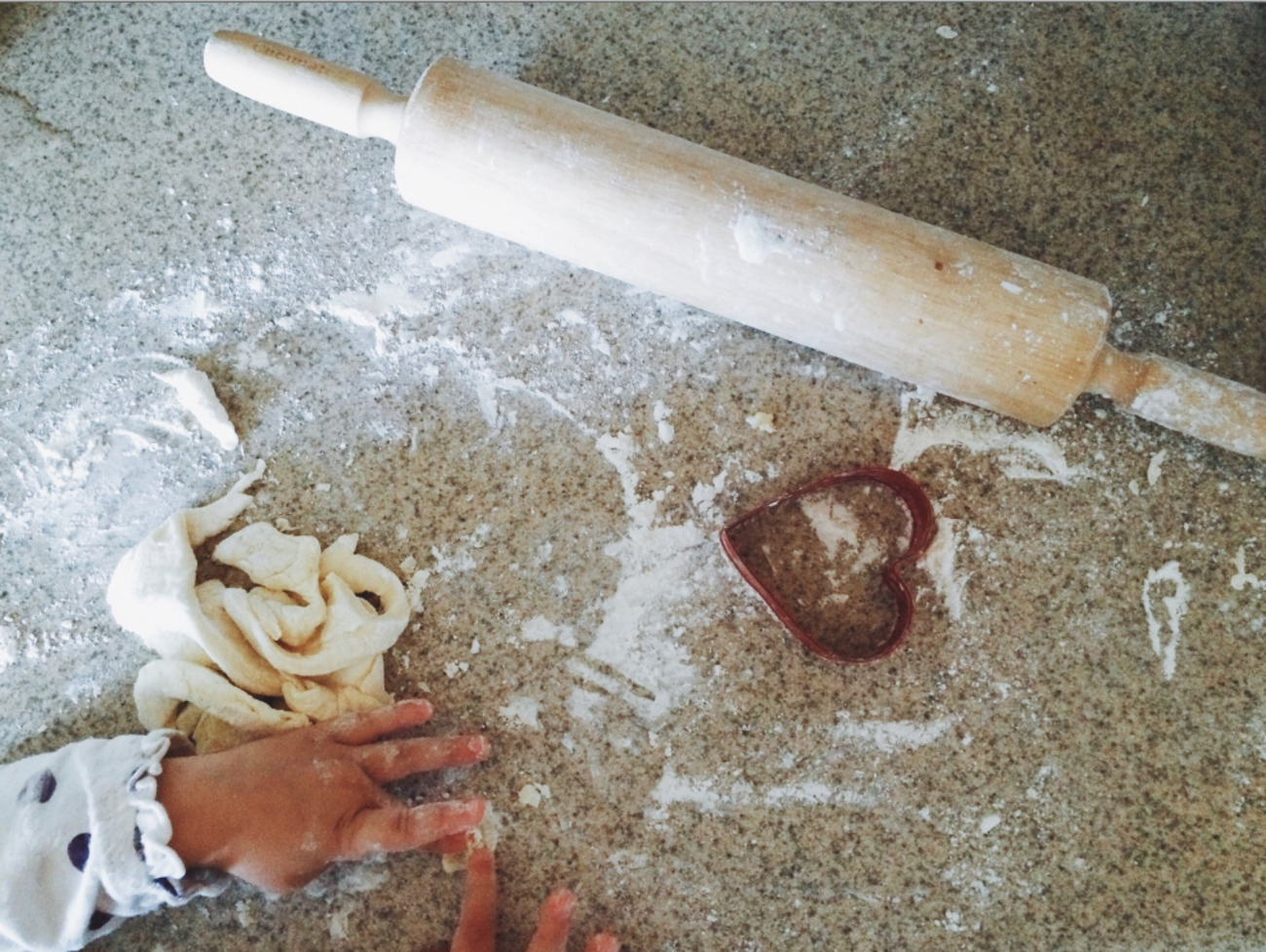
Quality Time

On its most basic level, cooking together is a wonderful opportunity to cash in on some quality family time and get everyone away from their screens, says Lauren Harris-Pincus, a registered dietitian nutritionist and owner of Nutrition Starring YOU. Having their help preparing meals gives you an extra 30 minutes to hear about your children's days before heading to the dinner table to talk some more.
Image via Twenty20/des
Healthy Foundations

It's easy to pass off cooking dinner as just another meal to prepare. But when your kids are participating, the food choices you make are rubbing off on them. And the healthier you can make those meals, the better. "Cooking teaches kids critical skills to help them to become healthier adults," says Harris-Pincus. "In a world of takeout and microwavable meals, kids who know how to construct simple meals will likely benefit from the nutrition provided by the fresh foods they learn to prepare."
Image via Twenty20/ruthjuliapalmer
Green Goodness
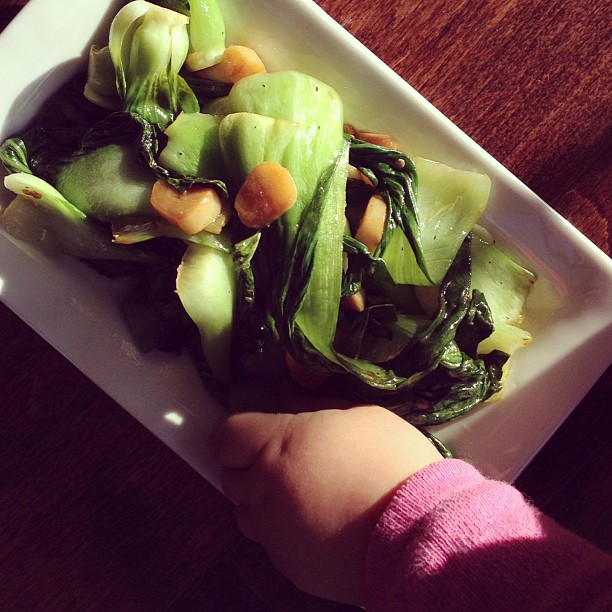
Besides providing a potential solution for picky eating, cooking with kids has been proven to increase their vegetable intake. According to a study that appeared in the August 2014 issue of Appetite, children who participated in preparing a meal ate 76 percent more salad than the children who just sat down at the table.
Image via Twenty20/rawmelissa
Build Confidence
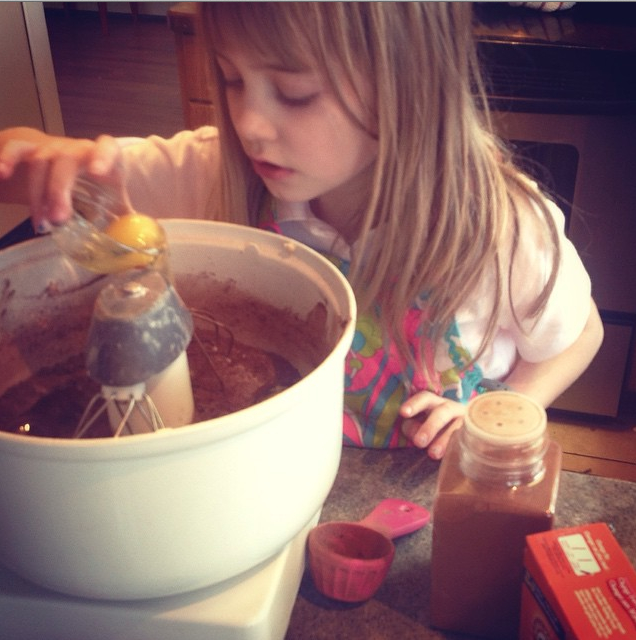
Another bonus of cooking together: It helps boost your children's self-esteem, which will carry into other aspects of their lives. "When kids develop confidence in the kitchen, they take pride in the culinary creations they serve to others," says Harris-Pincus. Fostering confidence early on is invaluable, regardless of whether they become professional chefs or not.
Image via Twenty20/gardeninthecity
Prevention Power
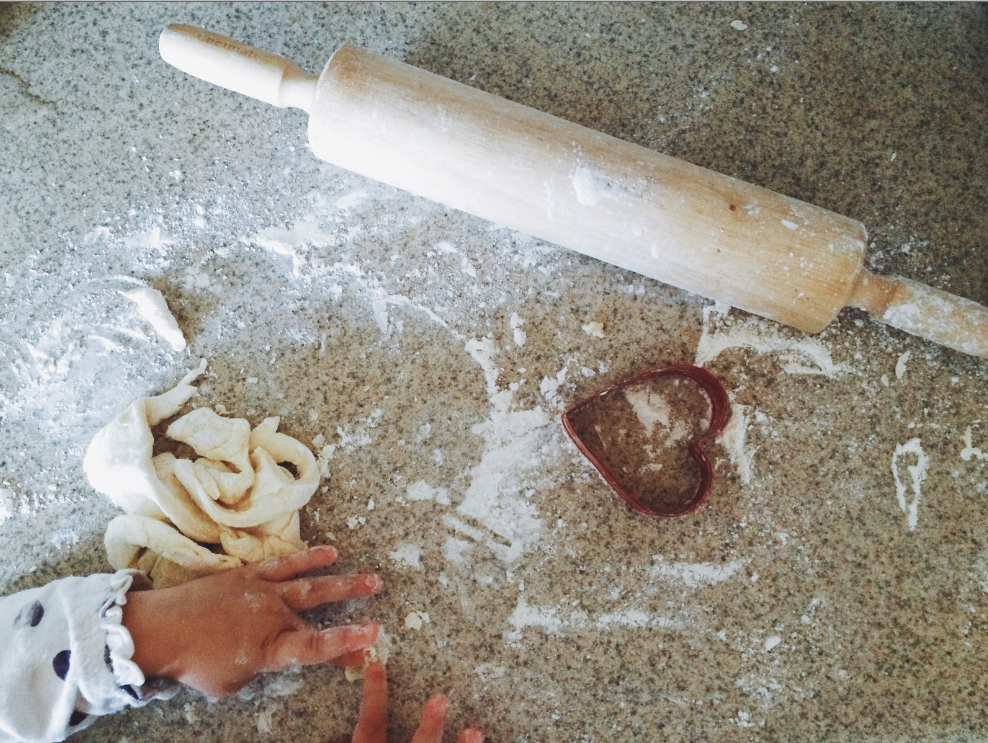
Not only are you teaching your kids invaluable skills in the kitchen, you're also decreasing their risk of life-threatening disease. "When we teach our kids how to prepare healthy meals at home, we help them maintain a healthy weight," says Halas-Liang. "Eating so many meals away from home, with calorie-dense foods in big portion sizes, is a big contributor to our nation's struggle with childhood obesity. And we know that poor eating habits in childhood are linked to an increased risk of heart disease, diabetes and cancer as adults."
Image via Twenty20/brittleighhhh
Picky Picky

Got a finicky eater in the bunch? Make sure that one in particular is cooking alongside you. Chances are he may be a little more willing to try a broccoli casserole or grilled salmon when he's had a hand in making it. "Kids are more likely to taste dishes they help prepare, so cookingwith picky eaters is an excellent way to introduce them to new foods," says Harris-Pincus.
Image via Twenty20/joianina
One of the Team
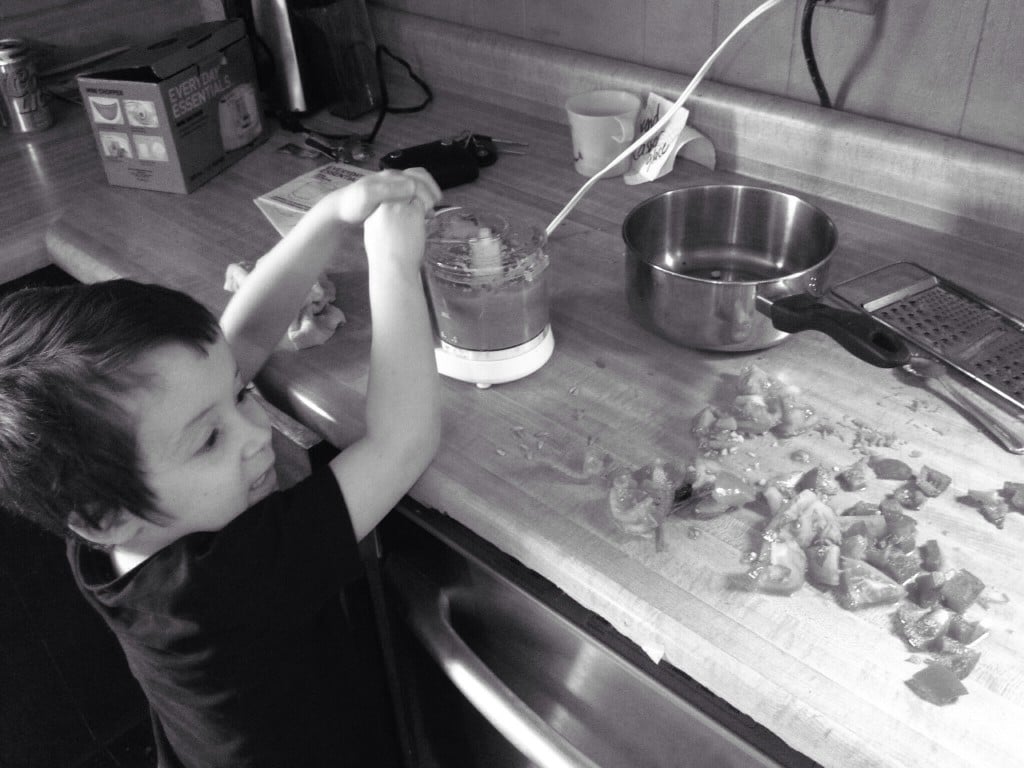
According to Rutgers University's Visions peer-reviewed newsletter, cooking as a family in the kitchen is one of the first places where a child learns the value of teamwork. Cooking together offers an opportunity to focus on cooperative learning, build communication skills and help them expand their vocabularies.
Image via Twenty20/marieeveboudreault
Teaching Tools
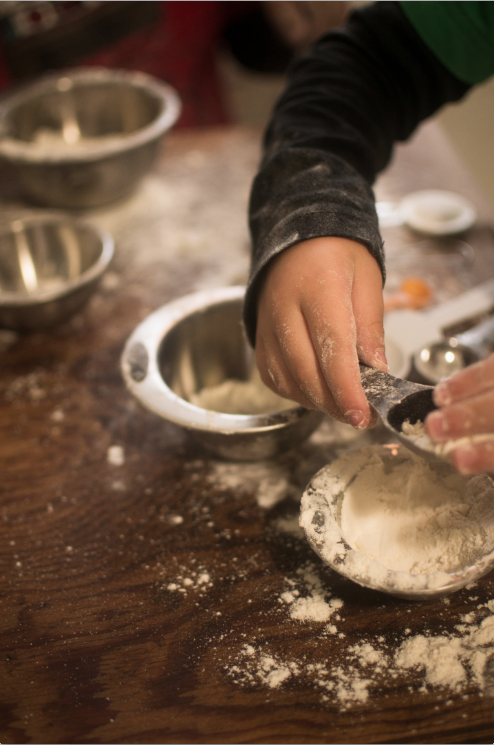
The kitchen is an amazing teaching resource for kids—whether you're cooking with toddlers or teens. For the youngsters, even the act of whisking eggs is an opportunity to work on their motor skills and see how food can change shape and form, says Melissa Halas-Liang, a nationally recognized nutrition educator, dietitian and founder of Super Kids Nutrition. For older kids, cooking educates them about nutrition, allows them to practice math and helps them learn how to follow directions and stay on task.
Image via Twenty20/cardiclips
Make Food Memories
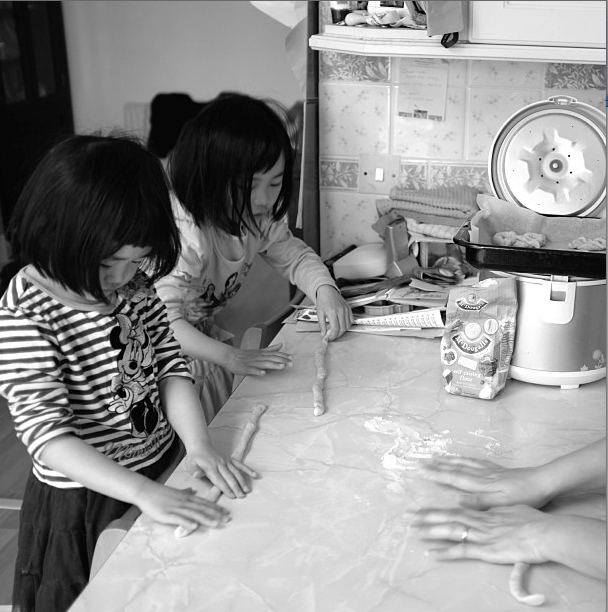
As you cook with your kids, you're creating memories that will impact their food preferences later in life. The earlier you can start solidifying family traditions around nutritious foods, the more likely your kids will continue those traditions on their own. "Many people prefer eating the type of foods they grew up with, even into adulthood," says Halas-Liang. "This is because you get repeated exposure to certain tastes that set specific preferences. And then there are memories associated with these foods that randomly bring on the cravings." According to Halas-Liang, those food preferences tend to be more difficult to change when a child grows up eating takeout food as opposed to wholesome home-cooked meals.
Image via Twenty20/cruddog
Beyond the Home
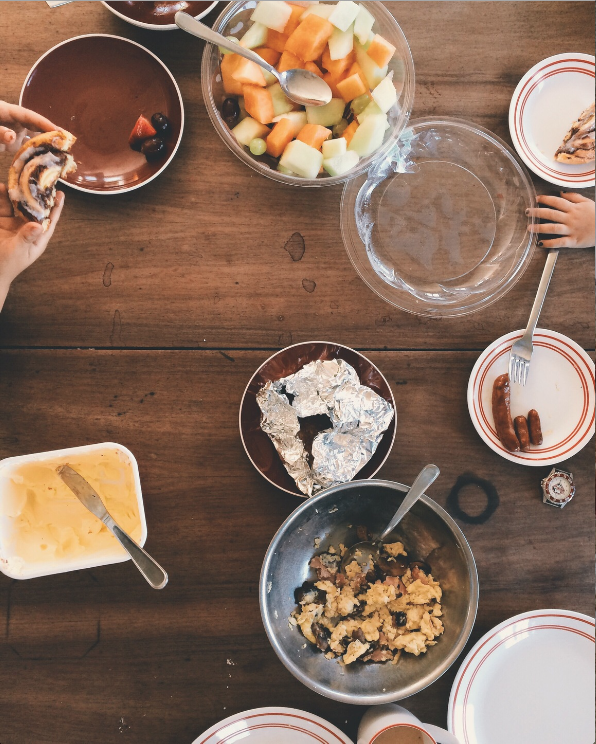
Especially for teens, learning how to prepare nutritious meals that they can eventually do without their parents' help will serve them well in the years ahead. "It may be wise to prepare them by teaching some basic healthy dishes that they can whip up without needing complicated appliances, expensive ingredients, and time,"says Halas-Liang. A few easy-to-make meal suggestions from Super Kids Nutrition include whole grain pasta with vegetables, oven-grilled vegetables that can beadded to any meal and a make-ahead tuna/salmon mix that can be used forsandwiches and salads.
Image via Twenty20/nikmock







